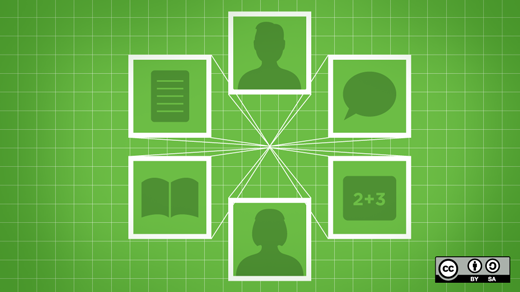Do we really need yet another collaboration tool? Miles Fidelman, a networking expert whose experience seems to span time, thinks so. He's worked with Bolt, Beranek, and Newman on military command and control systems, built a small hosting company, and started a community networking non-profit called the Center for Civic Networking.
Miles recently started an open source software Kickstarter project called Smart Notebooks, based on earlier work he did developing mission planning and coordination systems for the military. He's trying to create tools that reflect the way people naturally work together, particularly large groups struggling with poor network connectivity.
His "smart notebooks" are shared documents that stay synchronized across the net. Each person has their own copy of a document that will communicate with other people's documents using peer-to-peer protocol. First, you edit your copy, then everyone else sees the change on their copy. Unlike email attachments, there's no need to search for the most recent copy of a document. And unlike a Google Doc, everyone has their own copy—allowing you to make private notes and work offline. All of this using standard web browsers, email, and RSS; no more installing new software and configuring accounts for services running in the cloud.
Motivation for creating this system came from observations Miles made in venues as small as a church board of directors and as large as an Air Force operations center. Anytime people come together, they bring with them copies of documents: agendas, minutes, and presentation slides to name a few. As they exchange information, discuss issues, and make decisions, each person receives more documents and makes edits to them. Smart notebooks are designed to mimic this process across the Internet (and avoid a lot of manual copying in the process).
Miles draws models from several sources, including one of his favorite tools that died out—Hypercard (for groups, running in a browser). He also looks to TiddlyWiki (a personal wiki implemented as a single local file, opened and edited in a browser) coupled with a peer-to-peer, replicated messaging model inspired by USENET News' NNTP protocol. Plus, the latest HTML5 standards and the newest generation of web browsers are helping to make it all possible.
The goal for smart notebooks is a system that allows people to collaborate in peer-to-peer fashion with minimal reliance on a central system hosted by a company. Users will simply create a document in their browser (like editing a wiki page), then send copies via email (everyone stores their own copy locally as a file or in their browser's HTML5 Web Storage). Changes are then pushed across the net and notifications show up as an RSS feed. Finally, when a user opens their local copy, it automatically pulls in any changes.
Miles is particularly looking for a couple of larger sponsors—folks who are organizing an event, a conference, a crowdsourcing project, an issue campaign, or a flash mob—who want a better coordination tool and can serve as a test case.






8 Comments